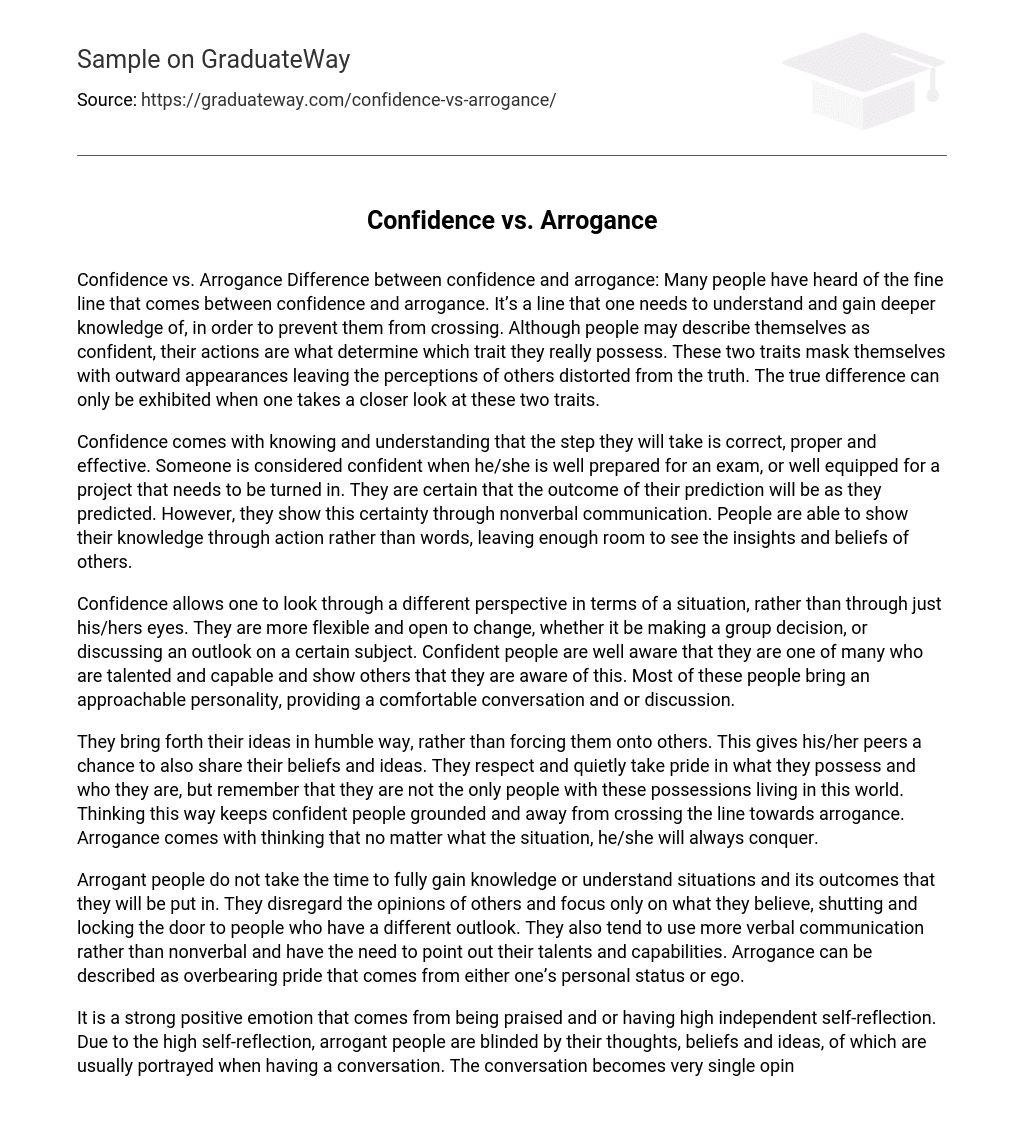The distinction between confidence and arrogance is a well-known concept. It is crucial to comprehend and delve deeper into this boundary to avoid crossing it. While individuals may identify themselves as confident, their behavior is what truly reveals their character. Both traits can be misleading, as they are often displayed through external manifestations, resulting in distorted perceptions. To truly understand the disparity, one must closely analyze these two traits.
Confidence is born from the knowledge and understanding that the forthcoming action is accurate, appropriate, and impactful. A person demonstrates confidence when they are thoroughly prepared for an exam or adequately equipped for a project to be submitted. They possess unwavering certainty that the anticipated result will align with their predictions. Nevertheless, they express this assurance through nonverbal means. Instead of words, individuals are able to manifest their competence through actions, allowing space to perceive the perspectives and convictions of others.
Confidence enables individuals to view situations from a different perspective, beyond their own viewpoint. It fosters adaptability and openness to change, whether it involves making collective decisions or discussing various perspectives on a specific topic. Confident individuals acknowledge their own talent and capabilities while recognizing that others possess equally valuable skills. They showcase this awareness to others, often creating an approachable demeanor that facilitates comfortable conversations and discussions.
Confident individuals express their ideas humbly instead of imposing them on others, allowing their peers the opportunity to share their own beliefs and ideas. They possess a deep respect for themselves and take pride in their abilities and possessions, while remaining aware that others also have similar qualities and belongings in this world. This mindset keeps confident individuals grounded and prevents them from crossing into arrogance, as they understand that conquering every situation is not always guaranteed.
Arrogant individuals lack the willingness to acquire knowledge or comprehend the consequences of the situations they encounter. They dismiss the viewpoints of others and solely concentrate on their own beliefs, excluding anyone with a different perspective. Additionally, they often rely on verbal communication rather than nonverbal cues and feel compelled to highlight their skills and abilities. Arrogance is characterized as an excessive sense of pride stemming from personal status or ego.
When arrogant individuals receive praise or engage in self-reflection, they experience a powerful positive emotion. However, this increased self-awareness often leads them to become excessively absorbed in their own thoughts, beliefs, and ideas during conversations. Consequently, the conversation becomes frustrating for all participants as it becomes one-sided. Modifying the perception these individuals have of themselves is difficult because it has been established with semi-permanent paint. Thus, changing this perception demands considerable effort.
While both confidence and arrogance may be misunderstood, a thorough analysis demonstrates their distinct differences. Arrogance emerges from an excessive self-centeredness conveyed through verbal and nonverbal communication. In contrast, confidence arises from self-awareness and the acceptance of oneself and others. Both arrogance and confidence acknowledge personal abilities; however, confidence also encompasses exhibiting and receiving respect, care, and humility.





